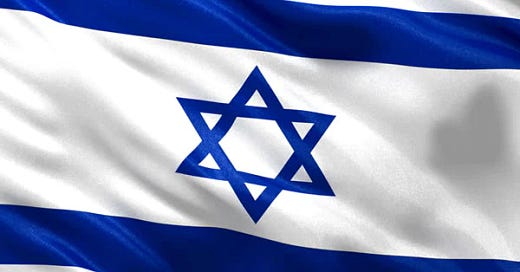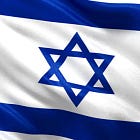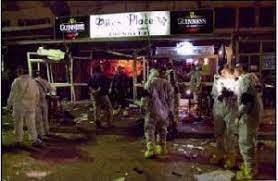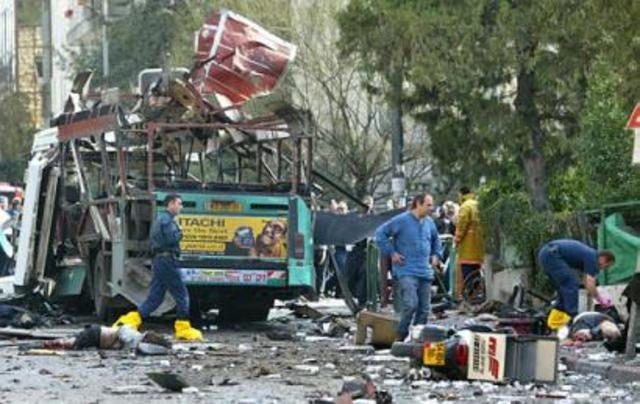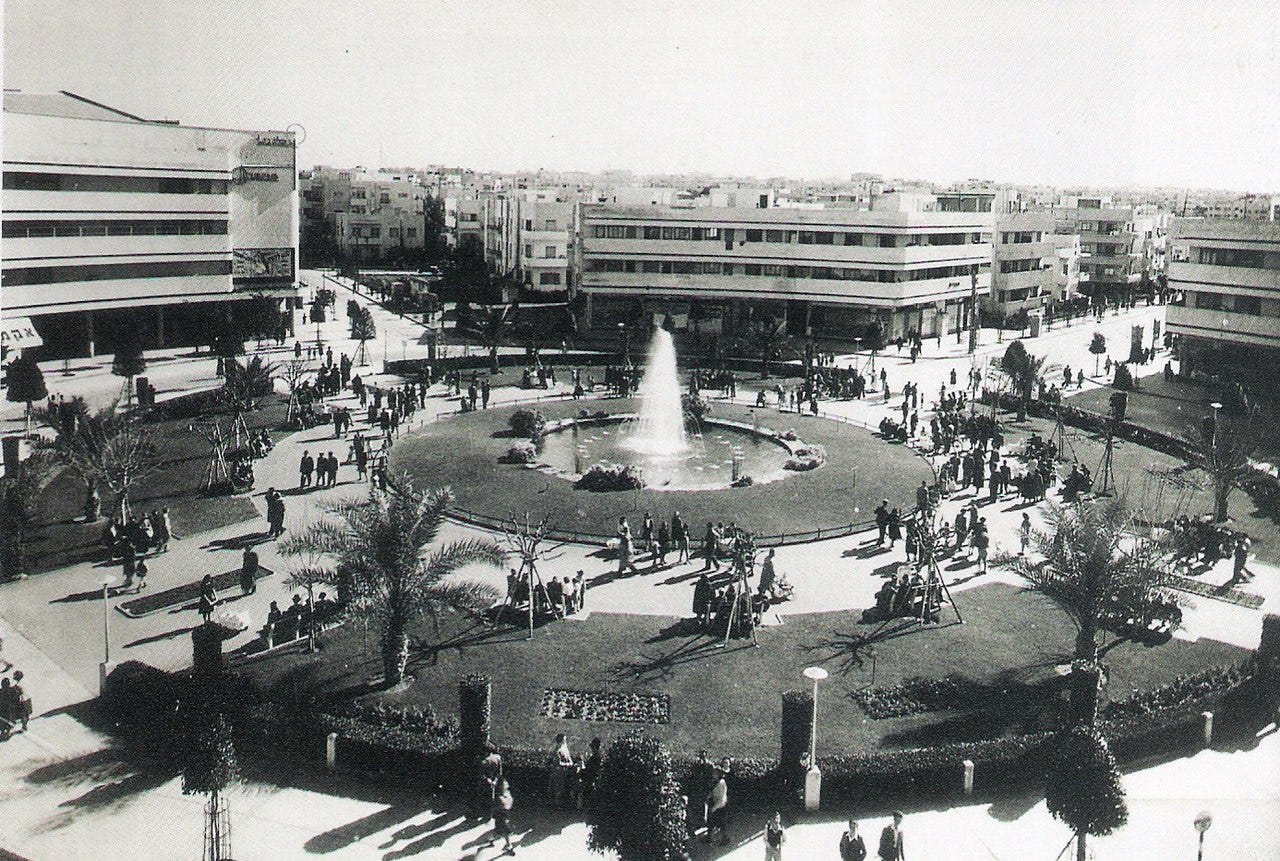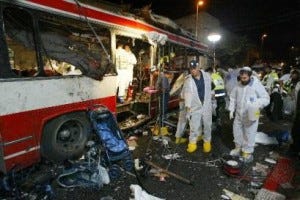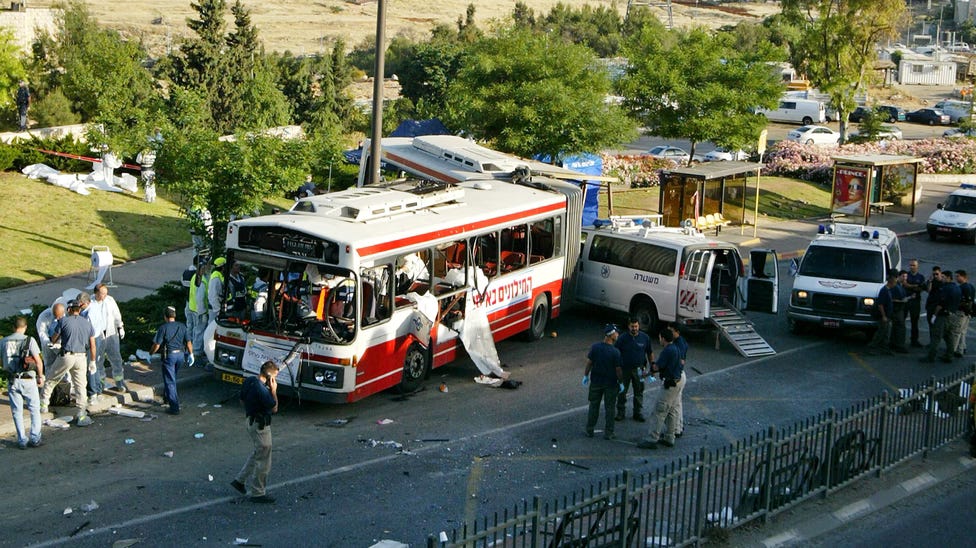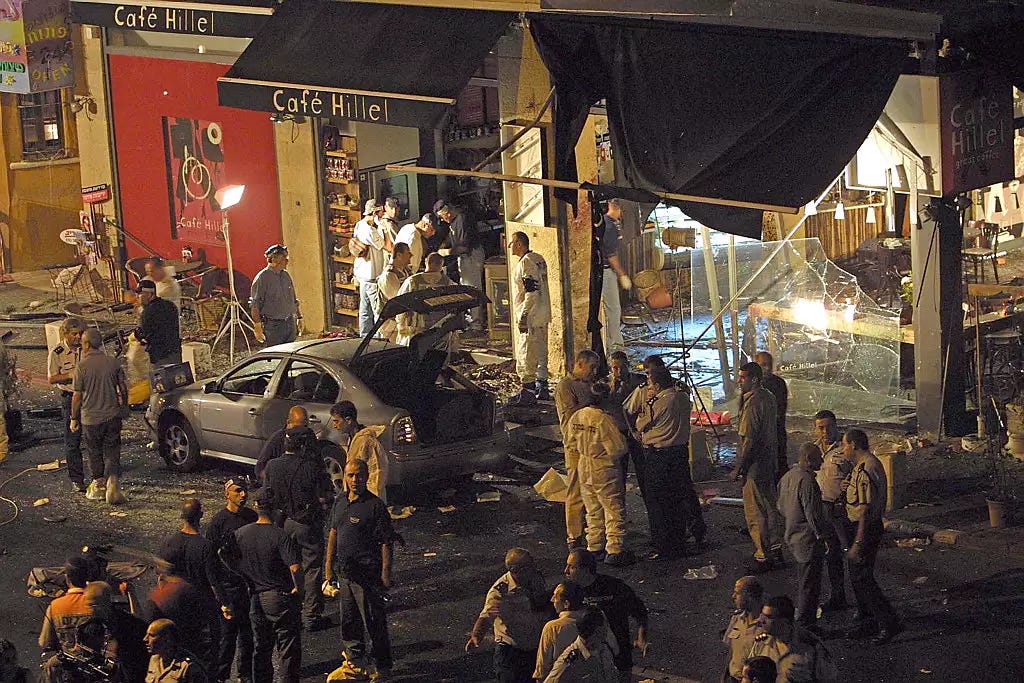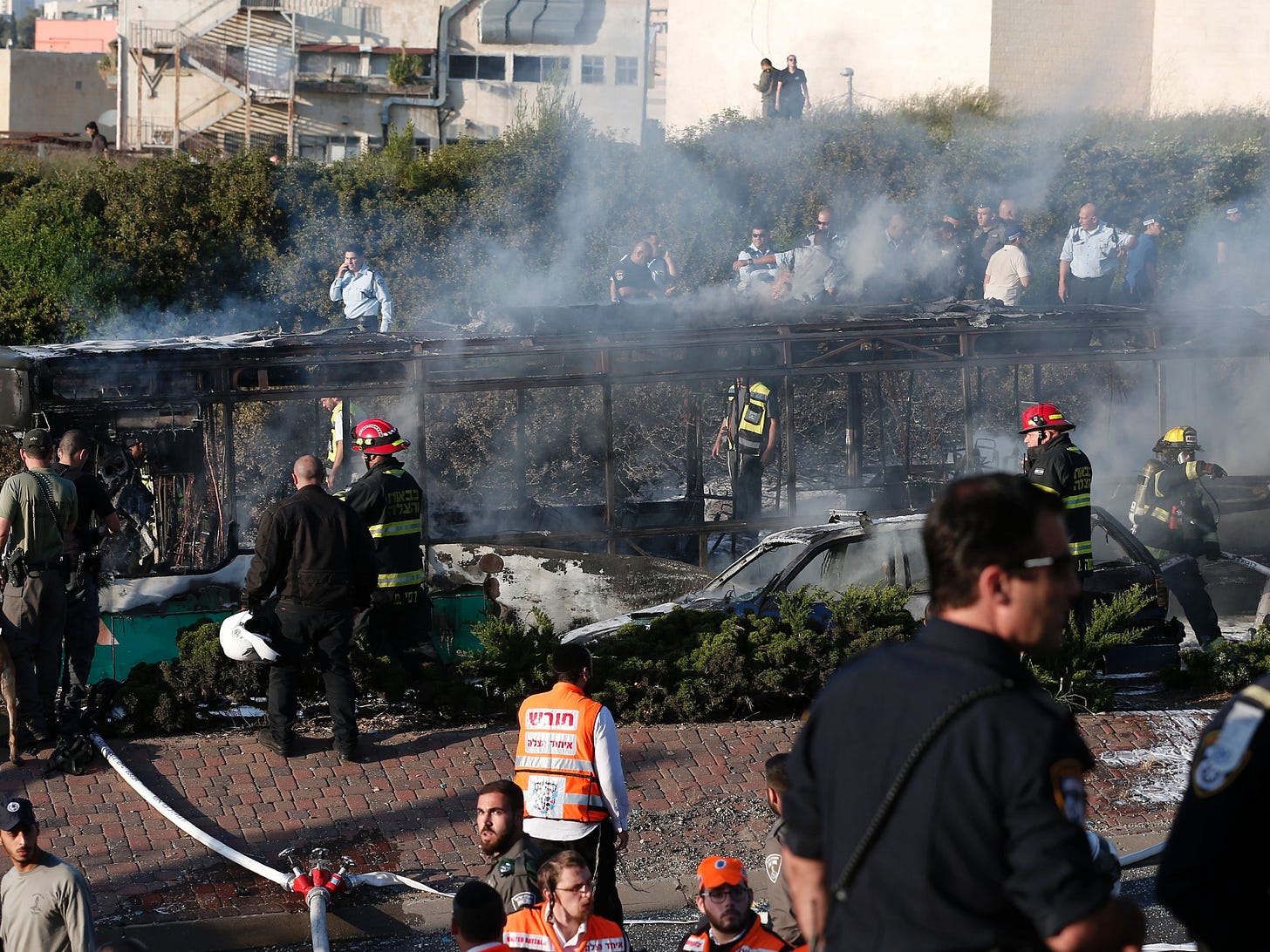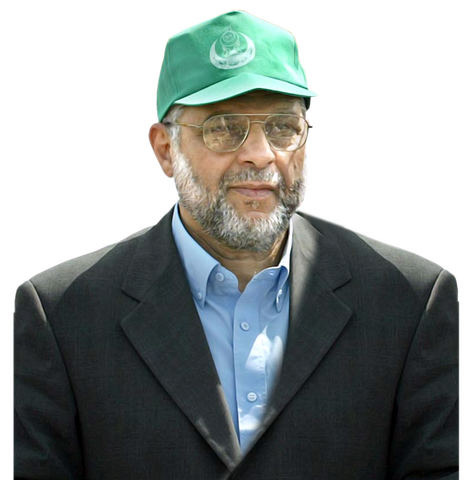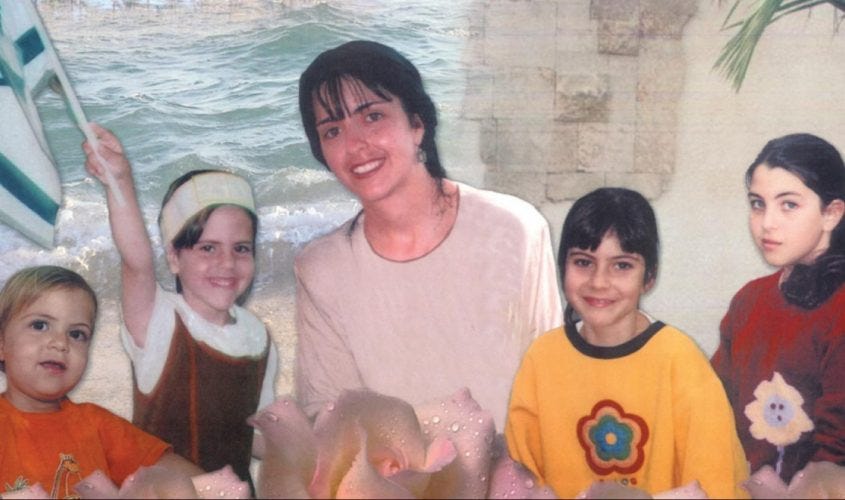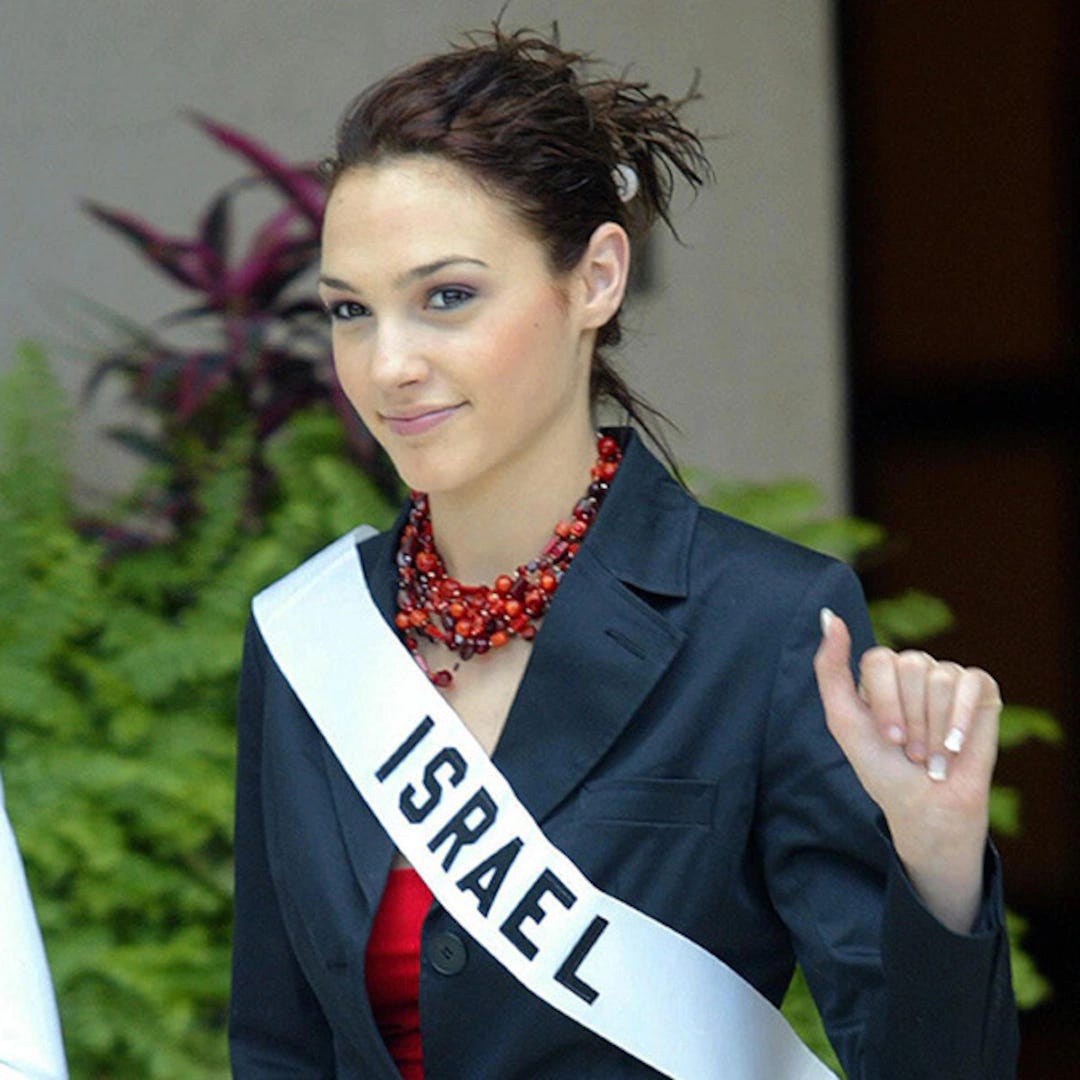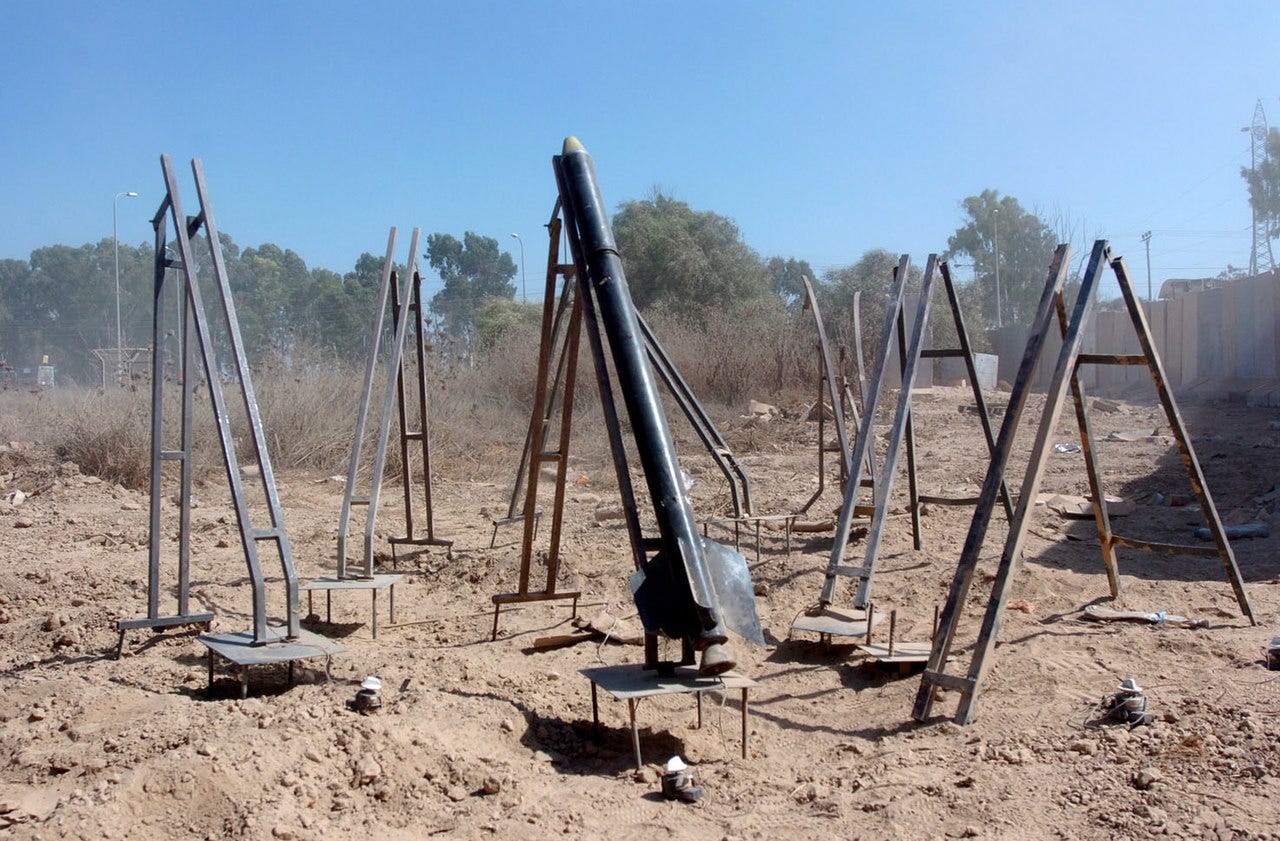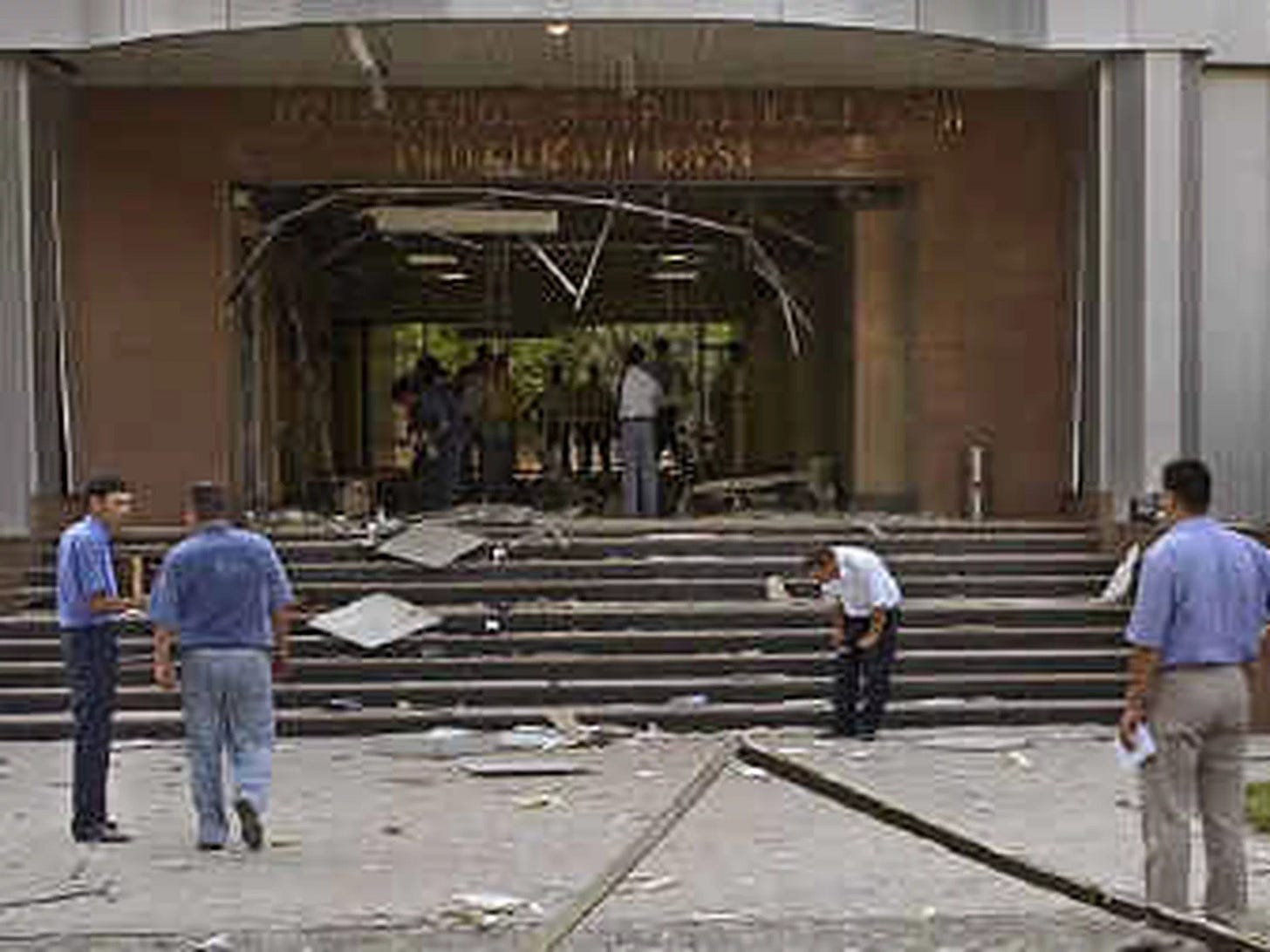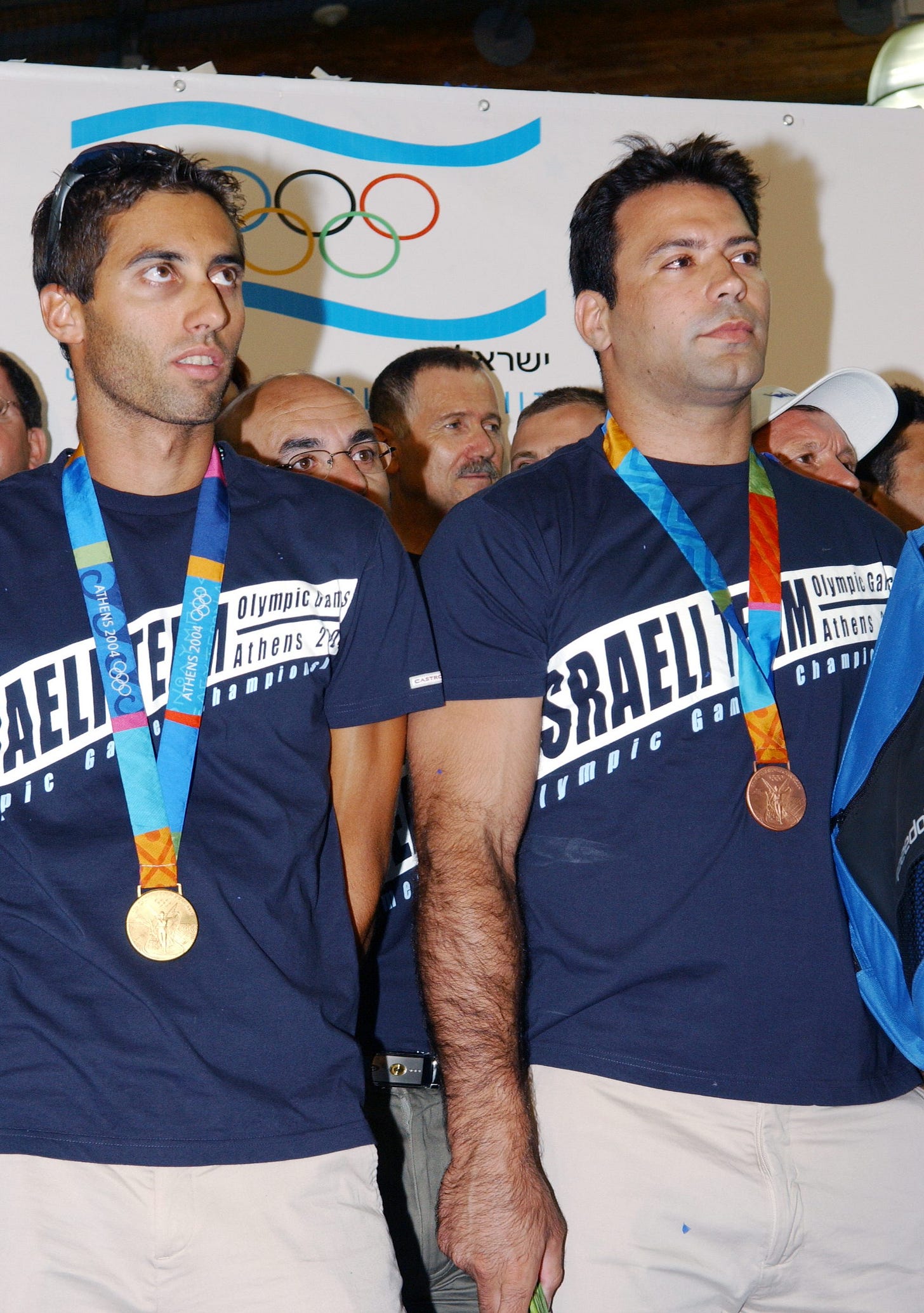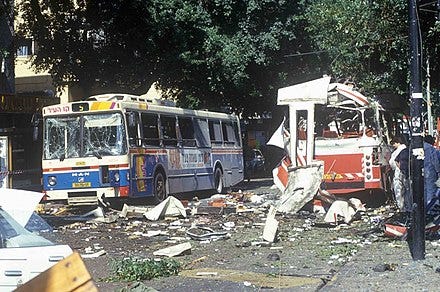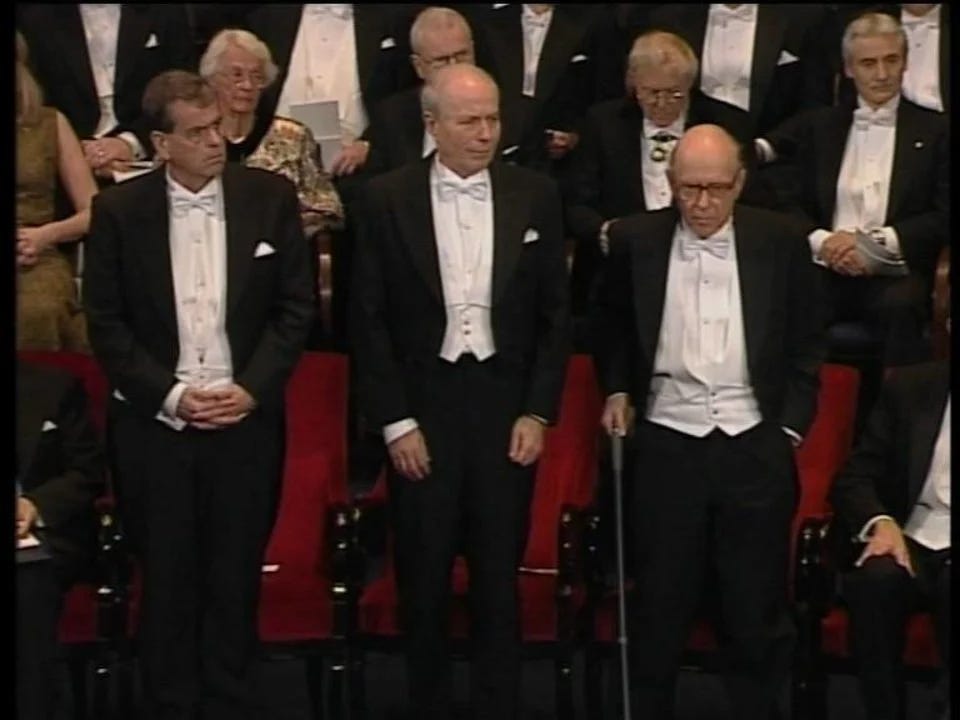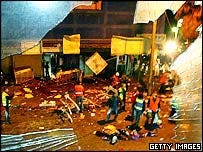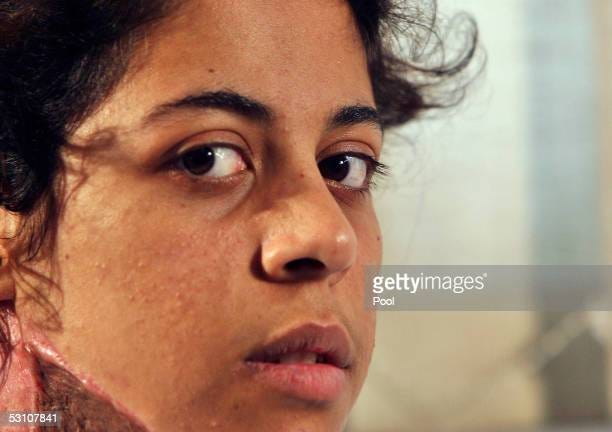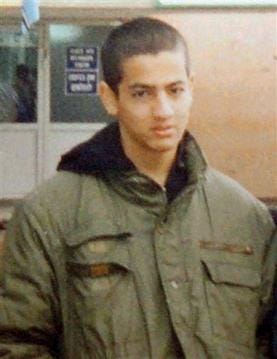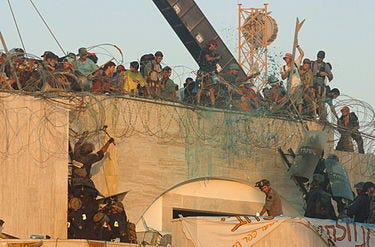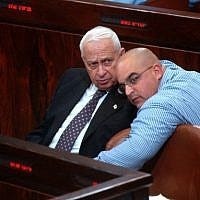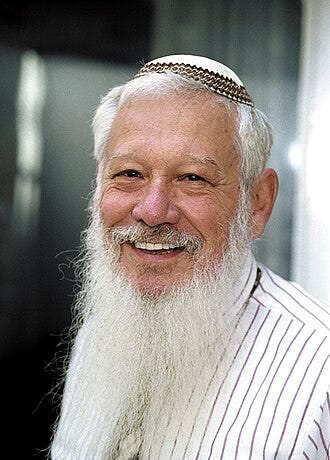In my last episode (which I just found out is known as a listicle), I covered the very violent years of 2000 to 2002. Click below if you missed it.
Today, in this listicle we are going to cover 2003 to 2005
2003
January 5 2003: Two Hamas suicide bombers blow themselves up about two minutes apart in a crowded neighborhood near the Old Tel Aviv Central Bus Station, 23 Israelis are killed and 100 are wounded.
February 1 2003: As the space shuttle Columbia is ending mission STS-107, she disintegrates during reentry over Texas, killing all seven astronauts, including Ilan Ramon, the first Israeli astronaut.
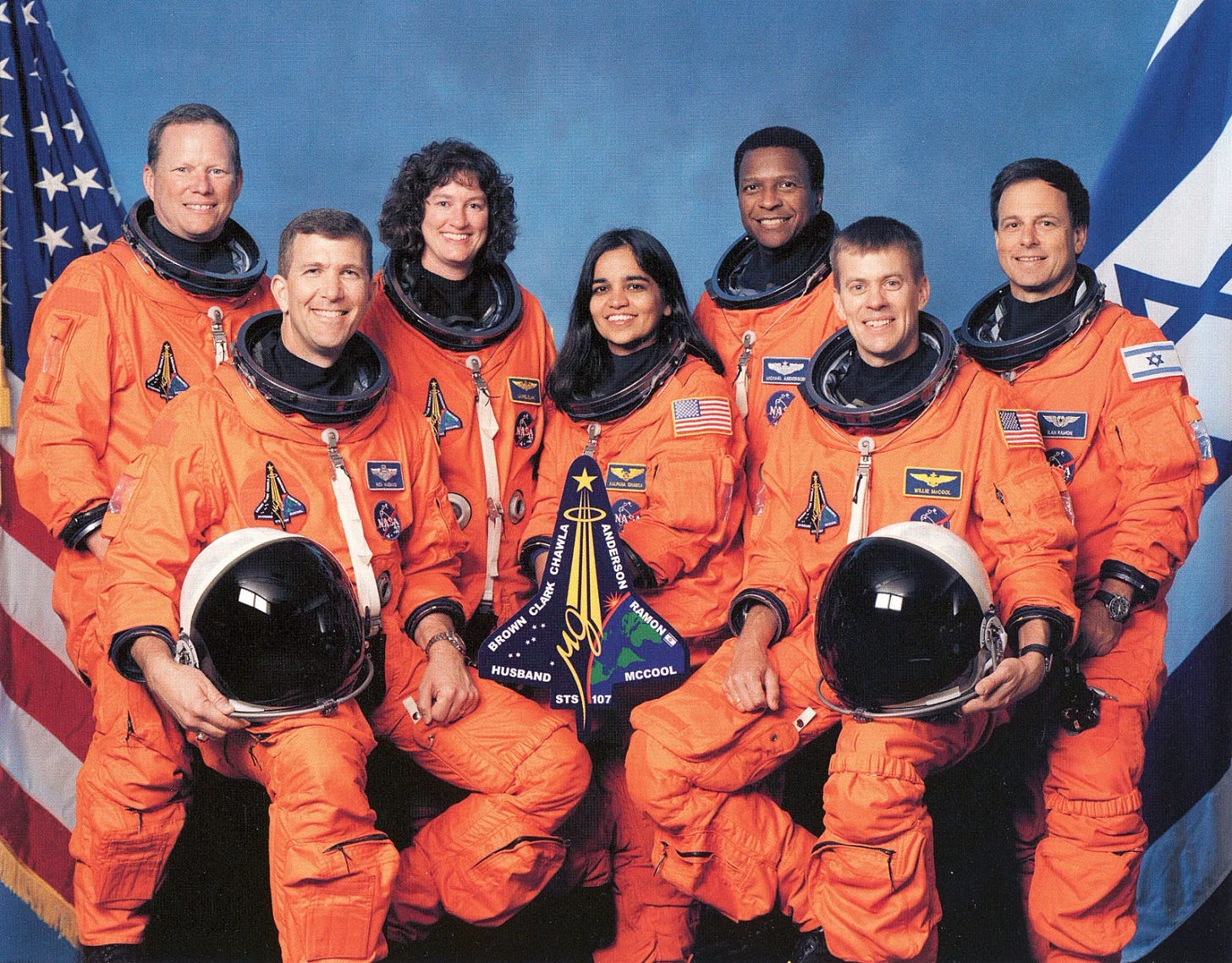
March 5 2003: A Hamas suicide bomber detonated a bomb hidden underneath his clothes on a bus carrying students headed to the University of Haifa. 17 were killed and 53 wounded.
March 16 2003: Rachel Corrie, an American, and a member of the International Solidarity Movement, is killed in Rafah by an IDF bulldozer. She was acting as a human shield to stop the destruction of an Arab house in an area the IDF was clearing to prevent militant activities. The IDF claimed her death was due to the restricted angle of view of the driver of the Caterpillar D9 bulldozer but ISM eyewitnesses said "there was nothing to obscure the driver's view.”
March 24 2003: Hilltop 26, an illegal Israeli settlement near Hebron is peacefully dismantled by the IDF.
April 30 2003: A British citizen, Asif Muhammad Hanif, blows himself up at Mike's Place, a Tel Aviv restaurant, killing four Israelis and injuring 50 others. One of the dead is the restaurant security guard who had prevented the bomber from entering the restaurant. Hamas and al-Aqsa Martyrs’ Brigade claim joint responsibility for the attack.
April 30 2003: The Road Map for Peace , sponsored by the US, UN, EU, and Russia is delivered to the Israeli government and the Palestinian Authority. The Roadmap was composed of three phases: I. Satisfying the preconditions for a Palestinian state; II. Creating an independent Palestinian state with provisional borders; III. Negotiations on a permanent status agreement, recognition of a Palestinian state with permanent borders and an end to the conflict.
Phase I (finished in May 2003): Mutual recognition; an immediate and unconditional ceasefire to end armed activity and all acts of violence against Israelis anywhere; Palestinian political-institutional reform; Palestinian elections; Israeli withdrawal to the positions of September 28 2000, (the start date of the al-Aqsa Intifada. There is no language regarding any further withdrawal). Israel refrains from deportations, attacks on civilians, demolitions and and other measures; reopens Palestinian institutions in East Jerusalem; improves the humanitarian situation, fully implements the Bertini report, eases movement; freezes settlement expansion and begin the dismantling of settlements built since 2000.
Phase II (June–December 2003): An international summit to support Palestinian economic recovery and launch a process leading to establishment of an independent Palestinian state with provisional borders. The revival of multilateral engagement on issues including regional water resources, environment, economic development, refugees and arms control issues. Arab states must restore pre-intifada links to Israel (including trade offices, etc.).
Phase III (2004–2005): A second international conference; permanent status agreement and end of conflict; agreement on final borders, clarification of the highly controversial questions of the fate of Jerusalem, refugees and settlements. All Arab states must agree to peace deals with Israel. The timetables for phases II and III were never agreed upon or completed.
May 12 2003: Prime Minister Ariel Sharon stated that a settlement freeze, a main Road Map commitment, would be "impossible" due to the need to build new houses for settlers who start families. When confronted about the need for new houses, Sharon asked, US Secretary of State, Colin Powel, “What do you want, for a pregnant woman to have an abortion just because she is a settler?".
May 17 2003: A Hamas suicide bomber blows himself up at Gross Square in Hebron. Two Israelis are killed.
May 18 2003: A Hamas suicide bomber blows himself up on a bus in the French Hill neighborhood of Jerusalem. Seven Israelis are killed and 20 are wounded.
May 19 2003: A Islamic Jihad suicide bomber approached the entrance to the Sha'ar HaAmakim mall in the city of Afula in northern Israel. The bomber detonated the explosives hidden underneath her clothes when she approached security the guards at the entrance, for the security inspection. Three people were killed in the attack (two security guards and a shopper) and 70 people were injured. The bomber was a 19-year-old Palestinian female named Hiba Daraghmeh from the West Bank city of Tubas, studying English literature at Hebron University.
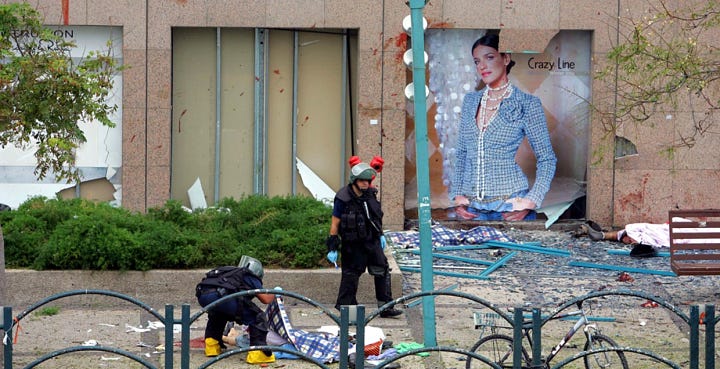
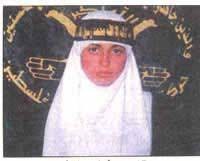
May 25 2003: The Israeli cabinet approves the steps set out in the Road Map for Peace but not the whole roadmap. The questions of Jerusalem and settlements are major sticking points.
May 27 2003: Ariel Sharon states that the "occupation" of the Palestinian territories is "a terrible thing for Israel and for the Palestinians” and "can't continue endlessly." Sharon's phraseology prompts shock from many in Israel, leading to a clarification that by "occupation," Sharon meant control of millions of Palestinian Arab lives rather than actual physical occupation of land.
May 29 2003: The Indian Ministry of Defense announces its purchase of the Phalcon early warning radar from Israel. The contract is worth 1.2 billion US dollars.
June 3 2003: Before a Mideast peace summit with US President George W. Bush, Israel frees 100 Arab prisoners in a sign of goodwill.
June 4 2003: Ariel Sharon promises to dismantle all illegal settlements in the West Bank. At the same time, Palestinian Authority Prime Minister Mahmoud Abbas renounces all terrorism against Israel.
June 11 2003: A Hamas suicide bomber dressed as an Orthodox Jew boards a bus in Jerusalem. As the bus leaves the station the bomber detonates his explosives, killing seventeen Israelis and wounding 100.
June 20 2003: Zvi Goldstein, his wife Michal, and Goldstein's parents, Lorraine, and Eugene, drove on Route 60, en route to a wedding party in Jerusalem. A two-man Hamas hit team waited along the road and when the Goldstein vehicle passed, opened fire with AK-47s. All four occupants of the car were hit. Eugene Goldstein took the steering wheel and to help his injured son drive the car away from the gunmen, driving eight miles for medical help. Zvi Goldstein, died of his injuries, his wife, father and mother were all wounded but survived.
July 17 2003: The White City of Tel Aviv is designated as a UNESCO World Heritage Site.
August 8 2003: Hezbollah shells several Israeli border posts. It was the first such exchange in eight months
August 10 2003: Hezbollah shells the Israeli town of Shlomo, killing a 16-year-old boy and wounded five people. IAF planes attack Hezbollah targets in Lebanon in response.
August 19 2003: A Hamas suicide bomber dress as an Orthodox Jew boarded a bus in Jerusalem's Shmuel HaNavi neighborhood, a bus crowded with Orthodox children returning from a visit to the Western Wall. When the bomber blew himself up, seven children and sixteen adults, including one who was eight months pregnant, were killed and 130 people were wounded including 40 children.
August 21 2002: Senior Hamas official Ismail Abu Shanab and two body guards are killed when their car is hit by two Hellfire missiles fired by an IDF Apache helicopter in the Gaza Strip.
September 2 2003: The Or Commission, a government panel to investigate the events at the beginning of the al-Aqsa Intifada, where twelve Arab citizens of Israel as well as one Palestinian were killed by police during several demonstrations, releases its report. The report criticized the Israeli police for being unprepared for the riots and using excessive force to disperse the citizens. Eight policemen were reprimanded by the commission, most of them after they had retired from the police force. Two police officers were released from the force due to the conclusions of the commission. The Commission also recommended that Minister of Internal Security, Professor Shlomo Ben-Ami be removed from his post. Three Arab figures (two Arab members of the Knesset and the head of the northern branch of the Islamic movement in Israel) were found to be partially responsible for incidents of incitement that preceded the riots.
September 7 2003: After a failed attempt to kill top Hamas leaders with an airstrike, Ariel Sharon declares that Hamas leaders are "marked for death" and will not have a moment's rest.
September 9 2003: A Hamas suicide bomber blows himself up at a bus stop near the city of Tzrifin. Eight Israelis are killed and 15 are wounded.
September 9 2003: A few hours after the Tzrifin bus stop bombing another Hamas suicide bomber detonates himself inside Café Hillel in Jerusalem, as the security guard is wrestling with him to prevent him from entering the restaurant. Seven people are killed, including Dr. David Applebaum, head of the emergency room at Shaare Zedek Medical Center, and his daughter Nava, who was going to be married the next day.
September 24 2003: A protest letter by a group of 27 IAF pilots is publicized. In the letter, the pilots announce they will refuse to fly further missions to bomb leaders of Palestinian terrorist groups in civilian areas. The pilots' letter calls the attacks "illegal and immoral". It draws quick condemnation from commentators, politicians and from military leaders, with calls for severe punishment including jail, although a dismissal is considered the most likely result. The pilots' protest is a reaction to attacks like the one on Hamas leader Salah Shehade in July 2002, which killed Shehade, his bodyguard and 15 civilians, including nine children.
September 26 2003: An Islamic Jihad gunman enters a home in the West Bank settlement of Negohot and shoots the four occupants. Seven-month-old Shaked Avraham and 27-year-old Eyal Yeberbaum are killed and both of Shaked’s parents are wounded. The gunman is later killed by Israeli security forces.
October 4 2003: Hanadi Jaradat, a law student at Yarmouk University and an Islamic Jihad suicide bomber, blew herself up inside the Maxim restaurant in Haifa. The restaurant, co-owned by Arabs and Jews, was a symbol of co-existence in Haifa. 21 people are killed, including five members of one family and a two-month-old baby. 60 people were injured, including Oran Almog, who was ten years old at time of the bombing. He was blinded by the blast and lost two of his grandparents, his father, his brother and his cousin. When Jaradat was 21, her fiancé had been killed by Israeli security forces. She agreed to the bombing after IDF undercover operatives in Jenin killed her cousin Salah and her younger brother Fadi, both of whom were accused by Israeli forces of being Islamic Jihad operatives.

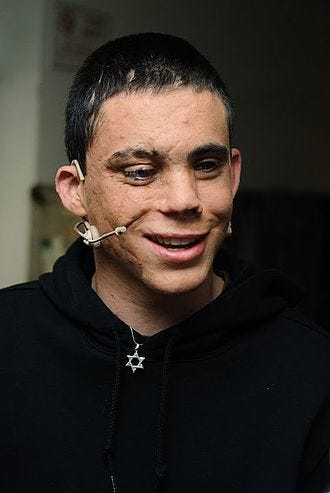
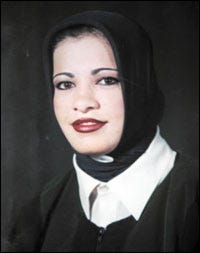
October 5 2003: IAF warplanes attack an Islamic Jihad training base in Syria, 15 miles northwest of Damascus, in response to the Maxim restaurant suicide bombing. The IDF claim the camp was used to train recruits in bomb assembly and guerrilla warfare and has released footage of the camp taken from the Al-Arabia TV station showing hundreds of weapons and tunnels packed with arms and ammunition.
October 6 2003: In a press conference, US President George W. Bush says that Israel has the right to defend its homeland. At the same time Mr. Bush asks Prime Minister Sharon to avoid any further actions that might destabilize the region.
October 21 2003: The UN General Assembly approves a resolution demanding that Israel remove the security fence in the West Bank. The resolution passes by an overwhelming majority of 144 to 4 with the US voting against the motion.
December 16 2003: The IDF revels it had a secret plan to assassinate Saddam Hussein because of his Scud missile attacks during the Gulf War. The plan was called off after five commandos were killed training for the mission.
December 25 2003: A PFLP suicide bomber blows himself up at a bus stop near Tel Aviv, killing four Israelis and wounding 16.
December 25 2003: Shortly after the PFLP attack in Tel Aviv, an Israeli helicopter gunship attacks a car in Gaza City, killing Islamic Jihad commander Mekled Hameid, two body guards and two innocent bystanders.
2004
January 12 2004: Over 100,000 people rally in Tel Aviv to protest Prime Minster Ariel Sharon's plans to withdraw from the Gaza Strip and parts of the West Bank.
January 14 2004: A female suicide bomber, kills two Israeli soldiers, a border policeman, and a security guard, and wounds twelve others at the Erez boarder crossing. Hamas and the al-Aqsa Martyrs’ Brigade claim joint responsibility.
January 26 2004: A top Hamas official Abdel-Aziz al-Rantissi offers a ten-year truce if Israel would withdraw from territory occupied since 1967 and acknowledge the creation of an Arab state. Israel dismisses the truce offer as "ridiculous".
January 29 2004: A suicide bomber blows up a bus in Jerusalem, killing ten and wounding 50. The al-Aqsa Martyrs’ Brigade claims responsibility for the attack. Hamas also claims responsibility for the bombing and denounces Al-Aqsa.
January 29 2004: 400 Arab, 30 Lebanese prisoners, and the remains of 59 Lebanese militants and civilians are transferred to Hezbollah, together with maps showing Israeli mines in South Lebanon, in exchange for the bodies of the three dead IDF soldiers, Benny Avraham, Adi Avitan and Omar Suaad, as well as the abducted Israeli citizen Elchanan Tenenbaum, who had been captured by Hezbollah after being lured to Dubai for a drug deal.
January 30 2004: Sheik Ahmed Yassin, leader of Hamas, announces that his group is making an all-out effort to kidnap Israeli soldiers to use as bargaining chips for Arabs in Israeli prisons, following the recent prisoner exchange between Israel and Hezbollah.
February 2 2004: Ariel Sharon announces to the Ha’aretz newspaper that he plans to dismantle 17 Israeli settlements in the Gaza Strip and says that he foresees a time when there are no Jews in Gaza at all.
February 22 2004: A suicide bomber blows himself up on a rush hour bus near Liberty Park in Jerusalem. Eight Israelis are killed and 60 wounded. The al-Aqsa Martyrs’ Brigade claims credit for the attack.
February 28 2004: An IDF helicopter fires two missiles at a car near the Jabaliya refugee camp, killing senior Islamic Jihad commander Muhammad Judah and the other two occupants of the car. Eleven bystanders are wounded.
March 14 2004: Two suicide bombers blow themselves up at the southern port of Ashdod, killing ten and wounding 35. al-Aqsa Martyrs’ Brigade and Hamas claim joint responsibility for the blasts.
March 22 2004: Hamas spiritual leader Sheik Ahmed Yassin and five of his bodyguards are killed when an IDF Apache helicopter fired two missiles at the car he was riding in.
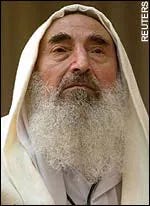
April 17 2004: Ahmed Yassin’s successor, Abdel Aziz al-Rantisi is killed along with two bodyguards when an IDF helicopter fires a Hellfire missile and destroyed the car. Four bystanders are wounded. Hamas is still looking for their next target for Israeli missiles, I mean, leader.
April 21 2004: Mordecai Vanunu who revealed Israeli nuclear secrets in the 80’s is released after serving 18 years in prison for treason.
May 2 2004: Tali Hatuel and her four daughters were driving near the Kissufim Crossing when their car was ambushed by gunman from Islamic Jihad. The gunfire caused her to lose control of the car, spinning off the road. The gunman then approached the vehicle and shot and killed Tail-34, who was eight months pregnant, Hila-11, Hadar-9, Roni-7 and Merav-2. IDF soldiers killed both gunmen after a chase. Islamic Jihad claimed credit for the killings.
May 2 2004: Members of Israel's Likud Party vote on whether or not to approve Sharon's proposal to pull out of the Gaza Strip unilaterally. Rejection of the proposal is seen as a major blow to the Sharon government. He subsequently says that he will not resign and may modify the plan.
May 15 2004: Gal Gadot is crowned Miss Israel. (This is not really important although I have put these in before, I just wanted an excuse to post a picture of Gal).
May 13-23 2004: In response to a repeated shelling of Israeli communities with Qassam rockets and mortar shells from Gaza, the IDF launched Operation Rainbow, to search and destroy smuggling tunnels used by militants to obtain weapons, ammunition and other contraband from Egypt. rumors spread about arms shipments in the Sinai from Iran, waiting to be smuggled through the tunnels into Gaza. Israeli media mentioned anti-aircraft missiles and long-range rockets waiting to get in, possibly via tunnels underneath the Suez canal. Justice Minister Yosef Lapid said on May 20, that the Rafah operation was necessary to protect Israeli civilian airliners from anti-aircraft missiles that smugglers were attempting to bring into Rafah. 41 militants and 12 civilians were killed during the operation and demolished 170-180 buildings in Rafah.
May 24 2004: Madonna cancels three concerts in Israel after receiving letters in which her two young children's lives are threatened.
June 30 2004: The Israeli Supreme Court issues a landmark ruling that a 19 mile planned stretch of the separation barrier in eastern Jerusalem violates the legal rights of the local Arab population to an extent not justified by security concerns, and therefore must be changed.
July 15 2004: New Zealand imposes diplomatic sanctions on Israel after an incident involving two alleged Mossad agents committing passport fraud.
July 19 2004: PM Ariel Sharon calls on French Jews to move to Israel immediately in light of the dramatic rise in French anti-Semitism (510 anti-Semitic acts or threats in the first six months of 2004, compared to 593 for all of 2003). The French government describes his comments as unacceptable. An Israeli spokesperson later claims that Sharon had been misunderstood.
July 21 2004: The UN General Assembly passes a resolution demanding that Israel obey the International Court of Justice ruling that the West Bank should be dismantled. Israel condemns the resolution and announces that it will not stop building the barrier.
July 25 2004: Over 100,000 opponents of Israel's unilateral disengagement plan, participate in a human chain stretching from Gush Katif to the Western Wall in Jerusalem, a distance of 50 miles.
July 30 2004: Three suicide bombers detonated themselves in Tashkent Uzbekistan. One outside the Israeli Embassy, another outside the US Embassy and the third at the Attorney General of Uzbekistan's office. The Islamist group Hizb ut-Tahrir is blamed by Uzbek President Islam Karimov. Other unnamed sources point to al-Qaeda.
August 21 2004: Israeli windsurfer Gal Fridman becomes the first gold medal winner in Israeli history, when he comes in first at the Athens Summer Olympics.
August 31 2004: Two buses near the Beersheba municipality building are blown up by a suicide bomber. The bomber took advantage of the fact that the two buses parked next to one another. He had previously placed a bomb on one of the buses and when he detonated the bomb he was carrying it caused the other bomb to explode. Fifteen Israelis are killed and 85 were wounded. The military wing of Hamas, the Izz ad-Din al-Qassam Brigade claims credit for the attack.
September 1 2004: The day after a bombing kills fifteen people, two suicide bombers from the Izz ad-Din al-Qassam Brigade blow themselves up on two buses in central Beersheba. Sixteen people were killed and 100 were wounded.
September 12 2004: 40,000 demonstrators protest in Jerusalem against Prime Minister Ariel Sharon's plans to force all Israeli Jews to leave the Gaza Strip and parts of the West Bank.
September 22 2004: A female suicide bomber detonates her bomb at the French Hill intersection in Jerusalem. Two people are killed and fifteen injured in the attack. al-Aqsa Martyrs’ Brigade claims credit for the attack.
September 30-October 16 2004: Following the death of two Israeli children from a Qassam rocket, Israel launched a major invasion of the northern Gaza Strip, focusing on the towns of Beit Hanoun and Beit Lahia as well as the Jabaliya refugee camp. The stated goal of the operation, code-named "Days of Penitence" was to prevent Palestinians from launching rockets into Israeli settlements and the town of Sderot. During this 17 day attack the Israeli military killed some 130 Palestinians; demolished at least 85 houses and damaged hundreds more. Many other buildings were also damaged including businesses, schools and mosques. According to the IDF, many of the buildings that were demolished were used by Palestinian militants as a cover for launching rockets and other military activities.
October 7 2004: Three car bombs are detonated in Egyptian towns in the Sinai Peninsula frequented by Israeli tourists. The largest explosion, which kills 34 and injures 105, was at the Hilton in Taba. The other two explosions occurred at the towns of Bat al-Sultan and Nuweiba, killing two Israelis and four Egyptians. A group calling itself Jamayia al-Islamia al-Alamiya ("World Islamist Group") later claims responsibility and threatens further attacks.
October 12 2004: Aziz Salha
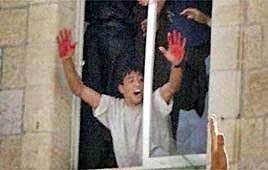
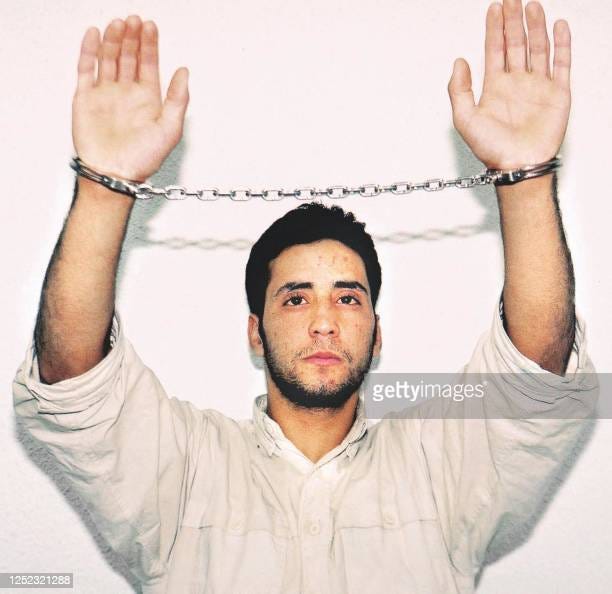
is sentenced to life in prison for his role in the killing and mutilation of two IDF reservists in Ramallah in 2002.
October 14 – About 100,000 Israelis in hundreds of cities march in demonstrations across Israel opposing the government's proposal to close settlements in the Gaza Strip and parts of the West Bank.
October 26 2004: The Knesset approves the plan to close 21 settlements in the Gaza Strip and four in the West Bank by the following year. Finance Minister Benjamin Netanyahu and three other cabinet ministers threaten to resign if a referendum on the plan is not held.
November 1 2004: A sixteen-year-old boy and member of the Popular Front for the Liberation of Palestine, blows himself up in a outdoor market in Tel Aviv. three people are killed and 30 wounded.
November 6 2004: Hezbollah launches a drone for the first time. During that first flight the drone actually enters Israeli airspace undetected.
December 5 2004: Israel and Egypt swap prisoners. Israel sent six Egyptian students that had crossed into Israel to attack Israeli citizens. Egypt sent Azzam Azzam, an Israeli Druze businessman sentenced to 15 years imprisonment by Egypt in 1997 after being accused of espionage for Israel.
December 10 2004: Aaron Ciechanover, Avram Hershko and American, Irwin Rose win the Nobel Prize in Chemistry, for the discovery of ubiquitin-mediated protein degradation, (and if you know what that means you get a prize), and become the first Israeli Nobel laureates in chemistry.
December 29 – The Knesset passes a law against terrorism and against support of terrorism. The law prohibits funding terrorists, as well as prohibiting the aiding of families of perceived terrorists and institutes inciting for terrorism. The law will give Israel the right to confiscate property and funds of any perceived terrorist organization, even if they do not target Israel or Israelis. The law is part of the state's legal war against terrorism. It passed 62–6.
2005
January 13 2005: Arab Militants detonate a truck laden with explosives at the Karni crossing in the eastern Gaza Strip. Six Israelis are killed and twenty are wounded. The al-Aqsa Martyrs’ Brigade and Hamas claim joint responsibility.
February 8 2005: During the Sharm el-Sheikh Summit Palestinian Authority President Mahmoud Abbas
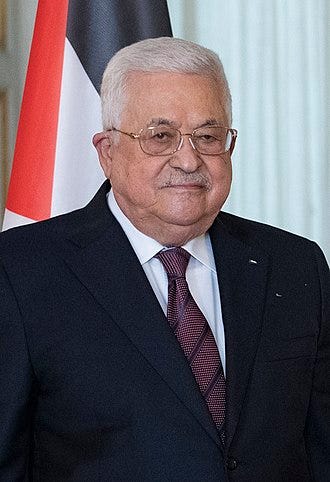
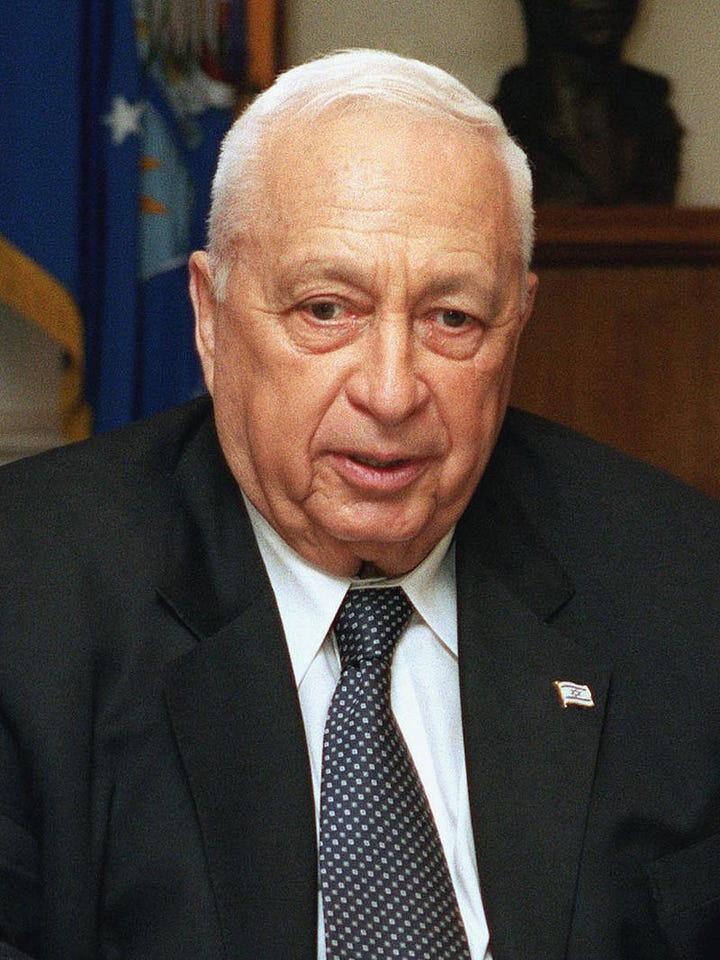
declares violence will come to an end, and Israeli Prime Minister Ariel Sharon agrees to release 900 Palestinian prisoners and withdraw Israeli forces from areas of the West Bank. This is considered to be the "official" end of the Second Intifada.
February 21 2005: Israel releases 500 Arab prisoners, as a gesture of goodwill to the PA and Mahmoud Abbas. Israel plans to release another 400 Palestinian prisoners within the following three months.
February 25 2005: An Arab suicide bomber blows himself up at the entrance to the Stage, a club in Tel Aviv. Five Israelis are killed, and 50 wounded. Islamic Jihad claims responsibility.
March 16 2005: Israel formally hands over control of Jericho to the Palestinian Authority.
March 31 2005: The Israeli government officially recognizes the Bnei Menashe people of northeastern India, who number 10,000, as one of the Ten Lost Tribes of Israel. Opening the door for thousands of people to immigrate to Israel.
May 31 2005: The Israeli Police announce that they have uncovered an Industrial espionage ring involving executives at several major Israeli corporations which used Trojan horse viruses to hack into their rivals’ systems.
June 2 2005: In the final step of their pledge to release Arab prisoners, Israel frees 398 prisoners.
June 20 2005: A female Arab suicide bomber is caught at the Erez Crossing, carrying explosives and a detonator in her underwear. She planned to carry out a bombing in the Soroka University Medical Center in Beersheba where she had received medical treatment for cooking burns and was scheduled for a follow up doctor’s appointment. The 21 year-old woman was identified as Wafa Samir Ibrahim Biss. She was sent to the Israeli hospital, that had treated her with care and dignity, by the al-Aqsa Martyrs’ Brigade.
July 12 2005: Islamic Jihad takes responsibility for a suicide bombing at the HaShoron Mall in Netanya. Five Israelis are killed and 43 wounded.
July 15 2005: The ancient towns of Haluza, Mamshit, Avdat and Shivta, stops on the Incense Route ( an ancient network of major trading routes linking North Africa with Saudi Arabia, the Holy Land, Mesopotamia and India) are designated World Heritage Sites by UNESCO.
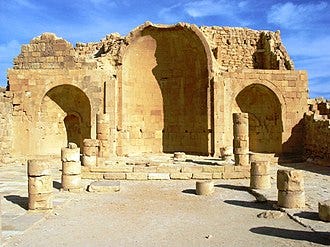
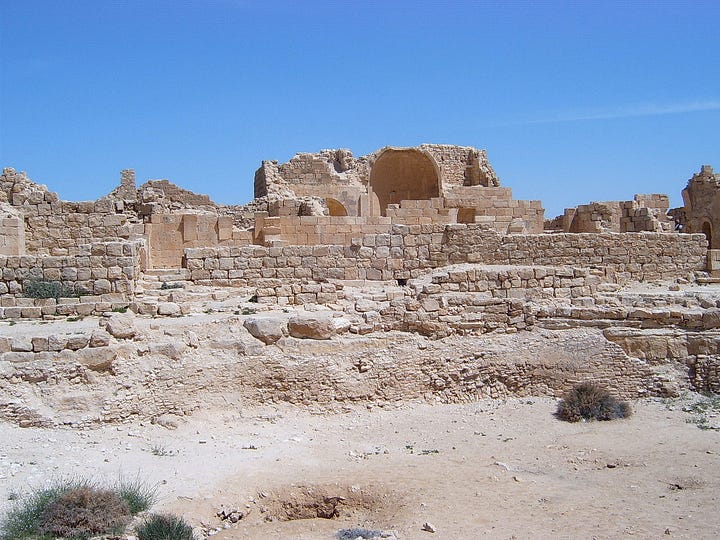
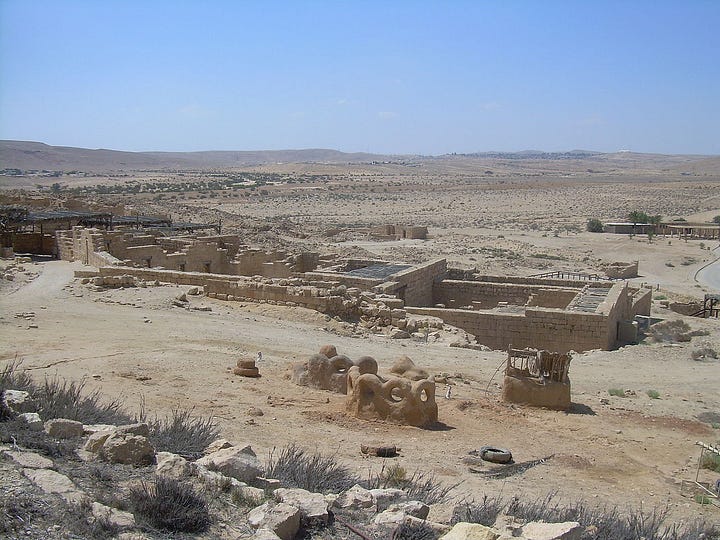
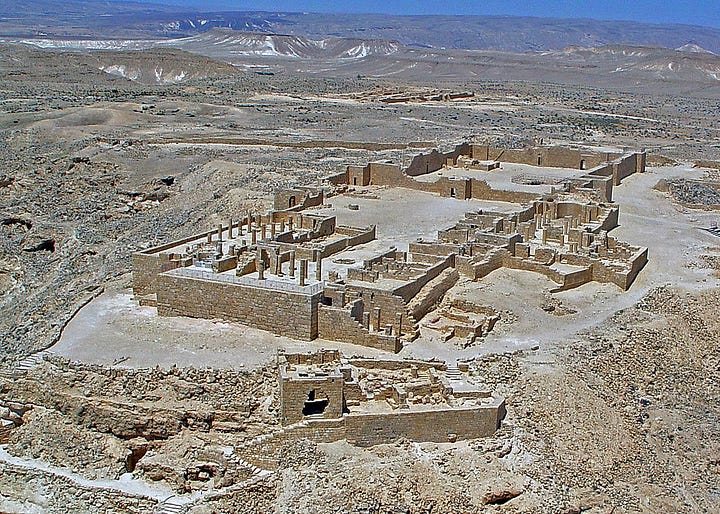
August 4 2005: Four Israeli Arabs are killed and 22 others are wounded by the 19-year-old IDF deserter Eden Natan-Zada , when he opens fire on a crowded bus in the town of Shfar’am in northern Israel. When he runs out of bullets, Natan-Zada is beaten to death by the survivors. No groups claims responsibility for the attack and an official in the settler movement denounced it. Prime Minister Ariel Sharon and several Israeli leaders condemn the attack and offer condolences to the families.
August 7 2005: Benjamin Netanyahu, the former Prime Minister of Israel, resigns his post as Finance Minister in protest against the planned Israeli withdrawal from the Gaza Strip. Deputy Prime Minister Ehud Olmert is appointed to succeed him.
August 9 2005: Israel orders settlers in the Gaza Strip to leave their settlements or face eviction.
August 11 2005: Tens of thousands of Israelis converged on Tel Aviv to protest the proposed removal of Israeli settlements from the Gaza Strip.
August 17 2005: The first forced evacuation of Jewish settlers, as part of the disengagement plan, commenced under orders from Southern Command leader, Major General Dan Harel. 14,000 Israeli soldiers and police prepared to forcibly evict settlers and "mistanenim" (infiltrators). There are scenes of troops dragging screaming settlers from houses and synagogues, but with less violence than expected.
August 17 2005: An Israeli settler kills three Arabs in the West Bank. The attack is condemned by Ariel Sharon as a "Jewish terror act" and "twisted thinking". In a statement from Hamas, they claim the right to avenge the deaths.
August 23 2005: The evacuation of 25 settlements in the West Bank and Gaza Strip is completed.
August 28 2005: Omri Sharon, son of Prime Minster Ariel Sharon and himself an Israeli politician, is formally indicted on charges of corruption and perjury. Following his involvement in a scandal relating to fundraising for his father's 1999 Likud leadership campaign.
September 12 2005: Israel withdraws the last of its troops from the Gaza Strip, effectively completing its unilateral disengagement plan.
October 10 2005: Robert Aumann receives the Nobel Prize in Economics along with Thomas Schelling for their work on conflict and cooperation through Game Theory analysis.
October 26 2005: During the keynote speech at the "World without Zionism” conference held in Tehran, Iranian President Mahmoud Ahmadinejad, quotes the founder of the Islamic Republic of Iran, Ayatollah Ruhollah Khomeini, when he called for the destruction of Israel, saying Israel is a "disgraceful blot" that should be "wiped off the map".
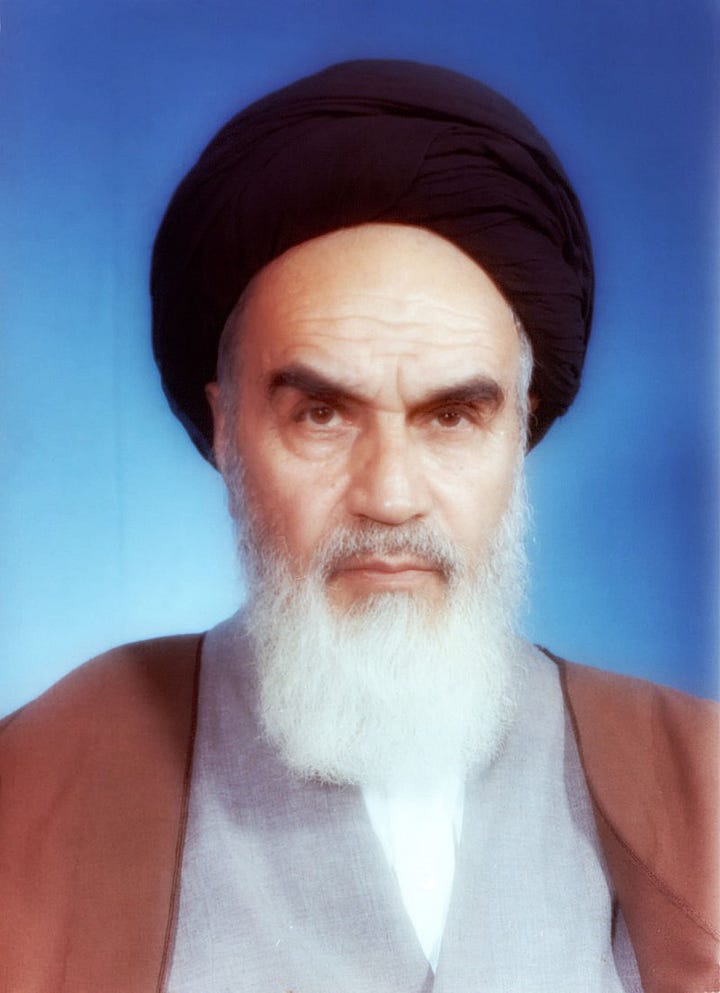

October 26 2005: An Arab suicide bomber carries out an attack in Hadera, killing six Israelis and wounding 26. Islamic Jihad claims responsibility for the attack.
October 27 2005: After the speech the day before by Iranian President Mahmoud Ahmadinejad, Israeli Prime Minister Ariel Sharon calls for the expulsion of Iran from the United Nations.
December 18 2005: Ariel Sharon is taken to the hospital in Jerusalem after suffering a minor stroke. He is released two day later and is scheduled to undergo a routine cardiac catheterization procedure on January 4 to seal a hole in his heart.
December 28 2005: Israeli jets bomb the PFLP-GC base in Naameh, Lebanon, a few miles outside of Beirut, in retaliation for a rocket attack that hit Qiryat Shemona. No one is killed in either strike.
That is it for 2003-2005. Next up I will cover the important year of 2006. Including the invasion of Lebanon. I hope you are enjoying these posts and please share them with anyone who might be interested. Until next time, have a great day!
Chris

